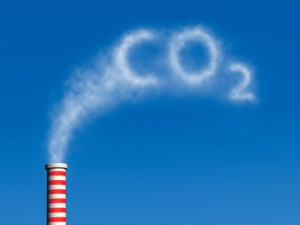Global carbon dioxide emissions can be reduced by 70% – Report
 Global carbon dioxide (CO2) emissions from the energy sector can be reduced by 70 per cent by 2050 and completely phased-out 10 years after with a net positive economic outlook – according to new findings.
Global carbon dioxide (CO2) emissions from the energy sector can be reduced by 70 per cent by 2050 and completely phased-out 10 years after with a net positive economic outlook – according to new findings.
The report “Perspectives for the Energy Transition: Investment Needs for a Low-Carbon Energy Transition” was released on Monday by the International Renewable Energy Agency (IRENA).
The report argues that increased deployment of renewable energy and energy efficiency in G20 countries and globally can achieve the emissions reductions needed to keep global temperature rise to no more than 2°C, avoiding the most severe impacts of climate change.
Adnan Z. Amin, Director-General of IRENA, said: “The Paris Agreement reflected an unprecedented international determination to act on climate. The focus must be on the decarbonision of the global energy system as it accounts for almost two-thirds of greenhouse gas emissions.”
“Critically, the economic case for the energy transition has never been stronger. Today around the world, new renewable power plants are being built that will generate electricity for less cost than fossil-fuel power plants. And through 2050, the decarbonisation can fuel sustainable economic growth and create more new jobs in renewables.”
The energy investment needed for decarbonising the energy sector is substantial – an additional USD 29 trillion until 2050; however, this only amounts to a small share (0.4 per cent) of global gross domestic product (GDP).
Amin said: “We are in a good position to transform the global energy system but success will depend on urgent action, as delays will raise the costs of decarbonisation”.
In addition, according to IRENA’s macroeconomic analysis such investment creates a stimulus that coupled with pro-growth policies will increase global GDP by 0.8 per cent in 2050, generate new jobs in the renewable energy sector – offsetting the jobs lost in the fossil fuel industry – and improve human welfare through additional environmental and health benefits due to cleaner air.
In 2015, 32 gigatonnes (Gt) of energy-related CO2 were emitted across the world.
According to the report, emissions will need to decline continuously to 9.5 Gt by 2050, in order to curb global warming to no more than 2°C above pre-industrial temperatures.
IRENA said that 90 per cent of this energy CO2 reduction can be achieved through the expansion of renewable energy and improving energy efficiency.
At present, renewables account for 24 per cent of global power production and 16 per cent of primary energy supply.
To achieve this scale of decarbonisation, the report affirms that renewable energy sources should represent 80 per cent of global power generation and 65 per cent of total primary energy supply.
The report projects that the energy mix will look significantly different in 2050, with total fossil fuel use standing at a third of present levels.
The use of coal will see the most significant decline, while oil demand will fall by 45 per cent.
Furthermore, the report outlines that the energy sector’s renewable transition must go beyond the power sector into all end-use sectors.
The construction and transport sectors need to adopt more bioenergy, solar heating, and electricity from renewable sources that substitute conventional energy.
The report specifies that electric vehicles must become the predominant car type in 2050, liquid biofuel production must grow ten-fold and high efficiency all-electric buildings should become the norm.
A combined total of 2 billion buildings will need either to be newly constructed or renovated.
Finally, the report calls for policy efforts to create an enabling framework and re-design of current energy markets.
It prescribes stronger price signals and carbon pricing to help provide a level playing field when complemented by other measures, emphasising the importance of considering the needs of those without energy access.
By Maxwell Awumah
